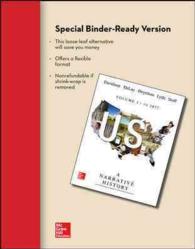- ホーム
- > 洋書
- > ドイツ書
- > Social Sciences, Jurisprudence & Economy
- > Jurisprudence & Law
- > general surveys & lexicons
Full Description
The Communicational Theory of Law (CTL) is a successful synthesis of the hermeneutic and analytical postulates, proceeding under the assumption that Law is the heritage of jurists and can be enriched by a rational and systematic reconstruction of the legal order. CTL offers an original perspective on the classic tension between normativity and institutionality, between Legal Theory and Legal Sociology, helping readers rediscover the value of Theory of Law in terms of explaining and advancing a range of legal functions.
It wouldn't be saying too much to claim that through CTL, the contributions of the European philosophy of law from the 19th and 20th centuries (jurisprudence of concepts, legal sociology, legal positivism, institutionalism, etc.) can be reclaimed and now coordinated from a communicational and philosophy of language perspective, offering us a complete and useful Theory of Law. CTL does not avoid the problem of the idea of justice; rather, it confronts it by distinguishing between the Theory of Justice and ambital justice. As such, readers are equipped to verify the originality of the Theory of Legal Decision in the CTL framework and, thus, will find new tools for critically assessing the performance of courts and public authorities.
This book details the epistemological presuppositions on which CTL is built, but also offers new lines of critical development, which reflect CTL's theoretical and philosophical potential. In the studies presented here, readers will find original answers to classic problems of the Theory of Law, together with examples of CTL's practical application to the great challenges of our time, such as interculturalism, legal AI, populist demagogy, the transparency of public powers, etc. - all without forgetting the challenges of the future of Law.
Contents
Introduction.- Part I Epistemological axis of the Communicational Theory of Law.- Epistemological analysis and Communicational Theory of Law.- Legal communication as a Semiosphere. The dialogue between authoring, authorship and legal authorities from the perspective of the Communicational Theory of Law.- Ambital and extra-ambital justice in the Communicational Theory of Law. A look from the spanish judicial ethics.- When claims for justice become rhetorical statements. A comparative analysis between Alasdair macintyre's philosophical proposal and Gregorio Robles' Communicational Theory of Law.- Part II Language, hermeneutics and Law.- Hermeneutics and the words of law (Law as Communicative Action).- Legal Hermeneutics and Discourse in the Judicial Interpretation.- Theoretic-pragmatic principles for a "rhetoric of agreement": the concordant function of theoretical art.- Communicational Theory of Law and Text: An analysis from José Ortega y Gasset Theory.- Part III Applied Communicational Theory of Law.- The principle of Human Dignity: empty concept or linguistic expression of an objective reality?.- Can motherhood be promised? Immoral promises, surrogate gestation, and law as a performative act in Reinach's work.- Semantic and Rhetoric regarding the understanding of the Constitution.- Shariah through the Lens of Communicational Theory of Law: Is it a Legal Order?.- What does it mean to be transparent? Semiotic analysis of the semantic and pragmatic implications of the term "transparency".- PART IV Law, Communication and AI.- AI and Communicational theory of law.- Technological singularity and personal identity. Reflections for an ethical-legal debate.- Law and communication in the age of Metaverse.- New instruments to think and decide. The last word in the "algo-cratic" era and human leadership in the "algor-ethical" context: what Law?.






